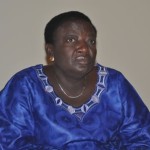Project Funding: NGO, Bussines, Financial Sector Stakeholders Decry Huge Borrowing By South East Governors
Latest Headlines, News Across Nigeria Tuesday, December 19th, 2023
(AFRICAN EXAMINER) – A non governmental organization NGO, Civil Rights Concern (CRC) and key Stakeholders in the financial and businesss sectors in South East Nigeria, have expressed worry over the alarming rate which state governors borrow huge money internally and externally to finance public projects in their respective states.
They noted that the situation has continued to make life unbearable for the poor masses in the geo political zone, and responsible for the worrisome multi dimensional poverty rate in the geo political zone
The Stakeholders stated this Saturday in Enugu during a one day Zonal dialogue on South East public debt financing and Sustainability facilitated by Civil Rights Concern and its partners, Christian Aid Nigeria, a UK-based organization, and the Civil Society Legislative Advocacy Centre CISLAC.
Speaking at the event, Executive Director of CRC, Mr. Okey Onyeka, explained that the organization is working on matters that improve accountability and access to Basic Social Services (BSS) in areas such as Elections and electoral process Education; Agriculture, Infrastructure and Health sectors.
He disclosed that CRC is currently working with the partners on public debt financing and sustainability, adding that it has reviewed the debt financing and suitability challenges in the country, focusing mainly on the southeast States.
Onyeka, said Stakeholders in the finance sector (public and private) were invited to the zonal workshop with a view to discuss the report generated by the reviews.
According to Onyeka, “the financing of our public projects and programmed through borrowed money for quite a long time now has really created a lot of problems and untold hardship for the Nigerian citizens, especially the vulnerable ones, including those in South East Nigeria”.
The CRC boss, regretted that despite the huge debt, by the South East states, the capacities the borrowing are supposed to create in areas as infrastructure and human capital development are not in place hence, pointing out that the rate of poverty in the region as captured in the 2022 report of the National Bureau for statistics NBS is worrisome.
“So, this multi dimensional poverty Nigeria and South East are experiencing is as a result of the poor performance of our capital programmes, including the ones funded under public debt. And if you look at the country generally, you we see that alot of debts have been created, and people have begin to raise the question, as to say, ‘Debt rising poverty: is it the Souvenir of the elites to Nigerians’.
Onyeka, further lamented that the debt profile and poverty rate in South East states of Imo, Abia, Anambra, Enugu and Ebonyi keep rising almost on daily basis without any capacity being created in the states, maintaining that if not urgently addressed such development may jeopardize the entire economy of the geo political zone in the nearest future.
Some of the participants who spoke at the event, frowned on the use of private contactors in revenue generation by states in the South East, positing that such method has done more harm than good to both the state and citizens, and promotes lack of accountability and transparency in governance.
They however, advocated use of single treasury Account (TSA) and electronic system by the states, as it eliminates corruption and enhances the internally generated revenue IGR base of governments.
The stakeholders equally faulted the new trend of proposing unrealistic bogus budgets by various states governor’s that hardly implement such budget up to 20 percent during the fiscal year.
The meeting which had members of the South East Good Governance project (SEGGP), in attendance, is also serving as a peer review merchanism in the zone.
A financial expert, and resource person at the meeting, Dr. Commas Ohaka in his presentation harped on the need for governments at all levels to reconsider the accumulation of domestic debt as it hurts the economy.
“Although multilateral debts appear more expensive, they are better in the long run as it allows for free domestic resources for local entrepreneurs which will
speed up investments in the respective states and reduce unemployment and poverty.
“Efforts should be made by the state governments to reduce their exposure to loans by drafting more realistic budgets.
Quoting the NBS report for 2022, Ohaka, recalled that Imo state with a total domestic debt stock of N220.8billion is the seventh in the federation and first in Southeast.
“The least indebted in the Southeast is Ebonyi. However, in terms of per capita debt burden, Imo is the highest while Anambra is the lowest
For external debts, Enugu comes tops with a debt burden of USD120.7m and a per capita burden of USD22.
“Imo state residents are the least indebted to foreign interests with a per capita external debt burden of USD12.
“Overall, the Southeast states are among the most indebted of all the states in the country.
“Two states, are among the top ten most indebted while all the five states fall within the first seventeen states.
“Anambra state generates the highest IGR in the region within the period under review.
“The IGR figures of all the states have also been very steady in a progressive pattern except for Ebonyi state which has been recording a steady decline since 2021.
“Surprisingly, Imo state recorded the least IGR in the region from 2019 to 2021. Even in 2022, the state was only able to out-perform Ebonyi.
Related Posts
Short URL: https://www.africanexaminer.com/?p=92906






















